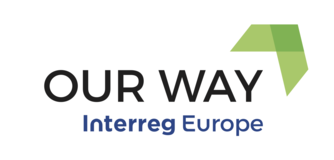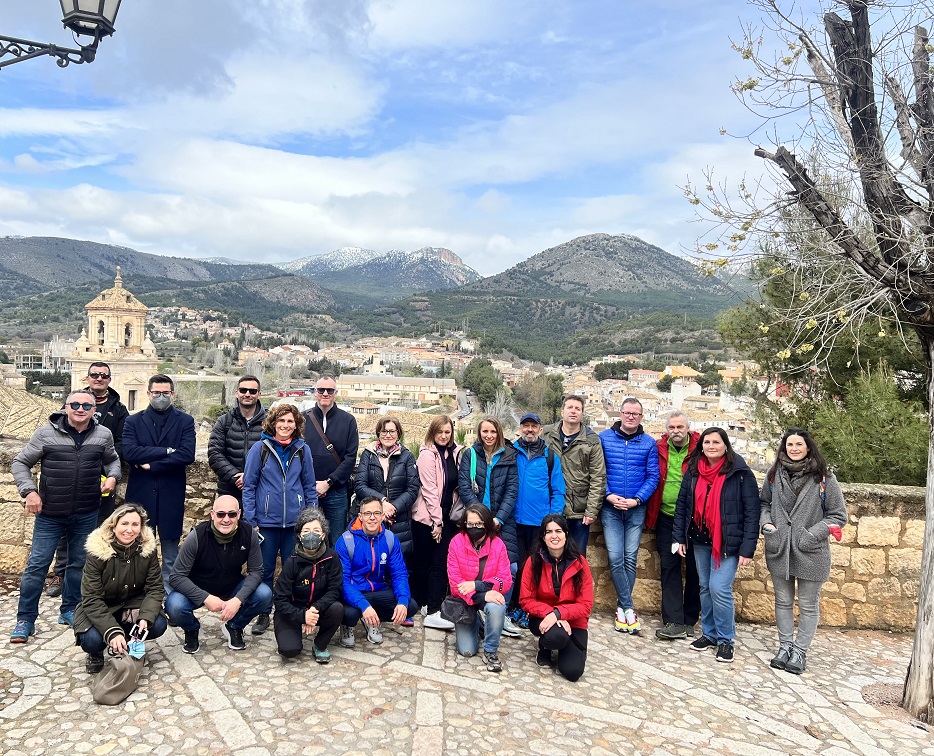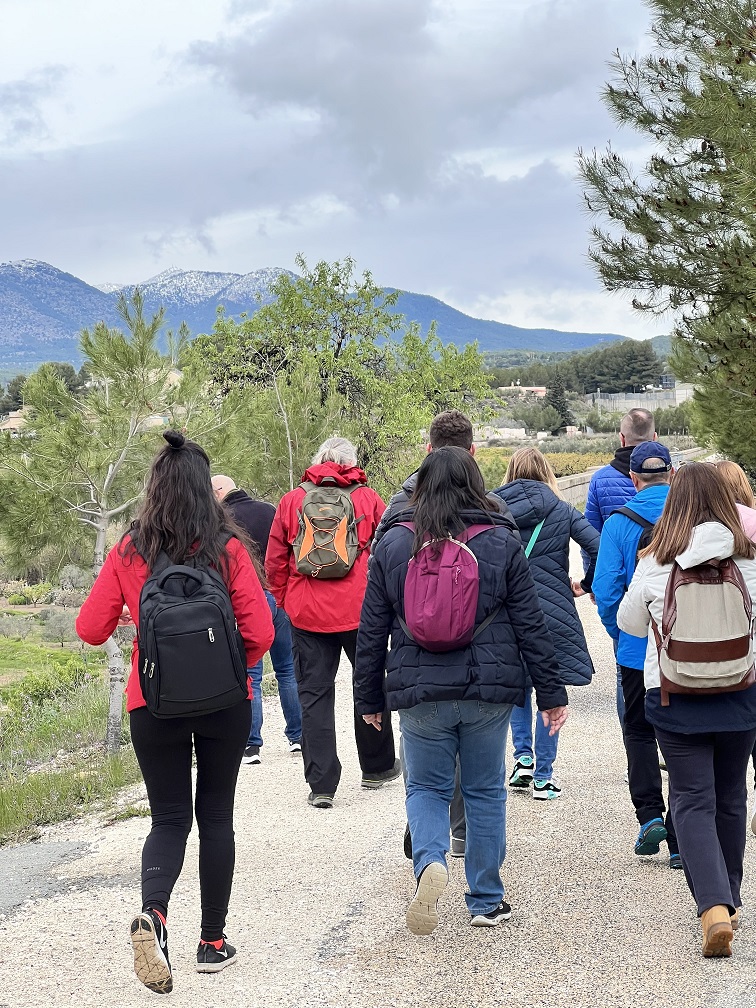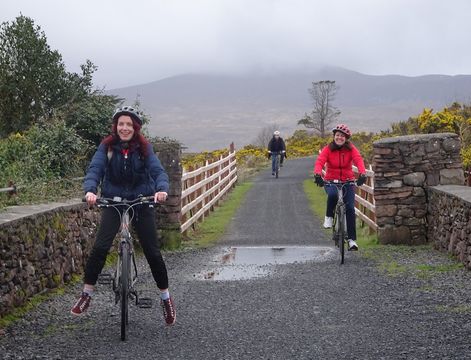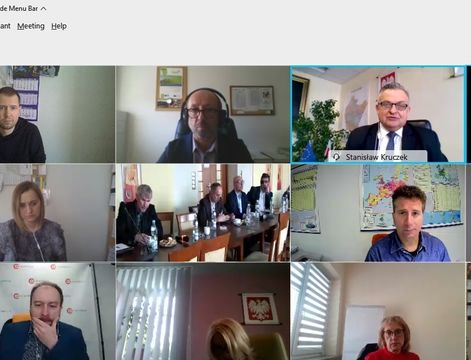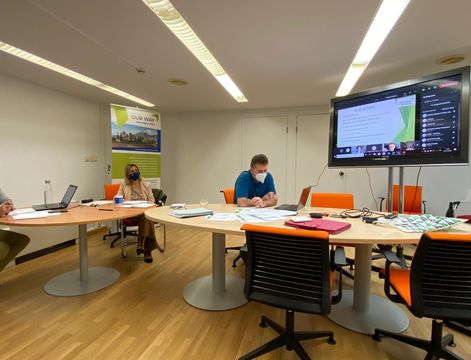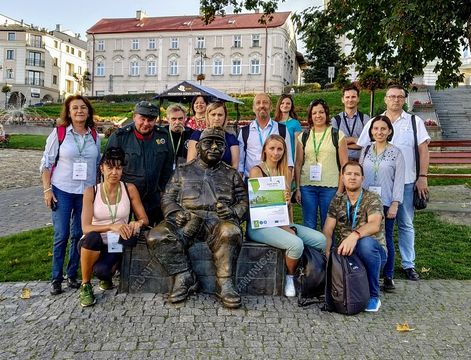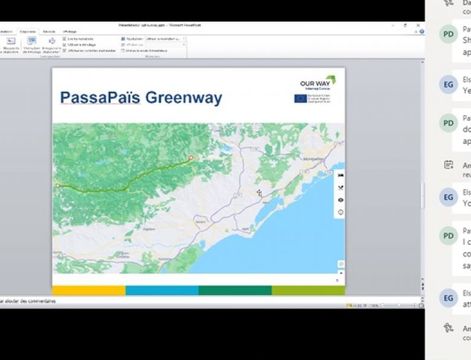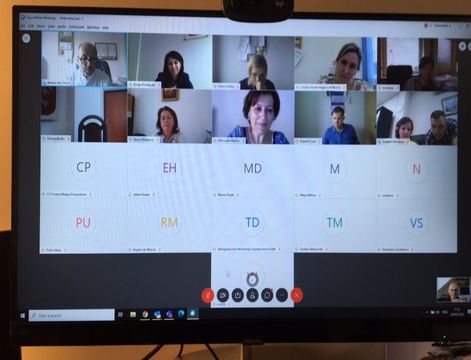The EGWA, as advisory partner, reviewed key contributions and points for completion from best practices received from partners, as well as from regions not represented in the association.
The partners were able to directly present best practices from their own regions. It should be noted that some of the best practices presented at the seminar were not those put forward on the fact sheets. The seminar and BP presentations by partners and stakeholders highlighted the different baseline conditions of the partners in terms of experience and knowledge of the greenways concept and its advantages, as well as in terms of geographical conditions, human and material resources, responsibilities and the inclusion of this accessible infrastructure among their regional priorities.
Also made clear was the diversity of working methods among the partners and stakeholders taking part in the seminar. From initiatives and infrastructure development supported by government authorities to initiatives with no physical infrastructure, promoted by local rural action groups and based on local participation and collaboration with non-profit organizations.

The project results will need to take starting point conditions and human and material resources into consideration, as well as the established priorities of each political region and the responsibilities of the different partners in relation to the greenways concept.
At the end of the sessions, the partners were able to make a preliminary selection of the best practices presented by other partners, according to which they judged most interesting in terms of cooperation and funding, the two core aspects addressed by the meeting, though the final choice of best practices will be made with their stakeholders. All the regions represented have best practices of interest to other project partners. Equally, all the partners are highly motivated by the project, which will facilitate the application or adaptation of best practices in their regions.
In relation to the two core aspects focused on by this first seminar, the following key conclusions were drawn:
1) Essential cooperation.
Government authorities share responsibility for regional management, e.g. building of infrastructure, promotion of tourist activities, equipment, investments, etc. Cross-departmental cooperation in government authorities at local, regional and national level is therefore an essential requirement. Infrastructure is vital, but equipment, transport and the promotion of tourist activities, etc., are equally important.
Because consumers demand a quality service offering, private sector and public-private sector collaboration are also of critical importance. If you have an outstanding greenway infrastructure with no nearby services, access is difficult and visitors are left with nowhere to eat, stay or hire bikes. This will seriously restrict the numbers of tourists using the greenway, and those that do use it will do so without spending any money, rendering the building of the infrastructure an unprofitable investment. In the same way, you can start an exceptional business, but it will not prosper without quality, well-maintained infrastructure; and if your greenway is not promoted, nobody will know about it.
All the different elements have a part to play, and when all the players work together, it's a win for all concerned. This is particularly true for itineraries whose outstanding potential is compromised by a lack of collaboration, maintenance and services for tourists.
It is also vital to clearly identify the entity and the person responsible for management of the itineraries and the natural and cultural heritage associated with them.
2) Essential promotion of natural and cultural resources along the itineraries.
Capture and convey the identity of the region, on the basis of natural and cultural resources. Promote resources, values, history, traditions... everything that makes your region different. Do what you do best and make it available to visitors, make them want to explore and enjoy the region. Local involvement is key to the success of the initiatives and boosting the economy of the region.
3) Essential funding.
Ongoing funding is essential for the maintenance, management and promotion of the itineraries. Funding is needed for the itineraries to succeed and exert a positive impact on the conservation and promotion of natural and cultural heritage.
The seminar was very positive, with real-life success stories. No doubt the success of the Irish experience, exemplified by the award-winning Great Western Greenway in County Mayo, will inspire new greenways initiatives in Europe for the protection and promotion of the cultural and natural heritage, thanks to the OurWay project within the framework of the Interreg Europe.
Mercedes Muñoz
European Greenways Association, Director
Advisory Partner
